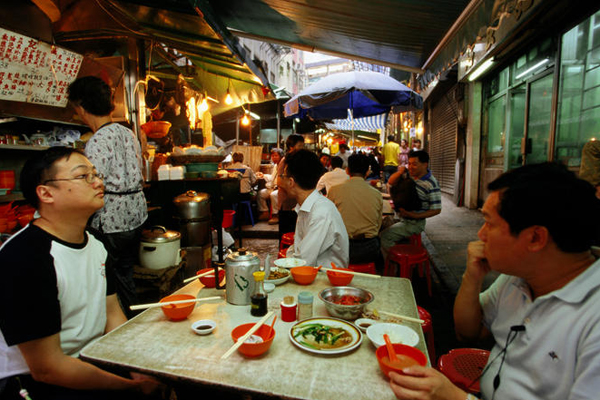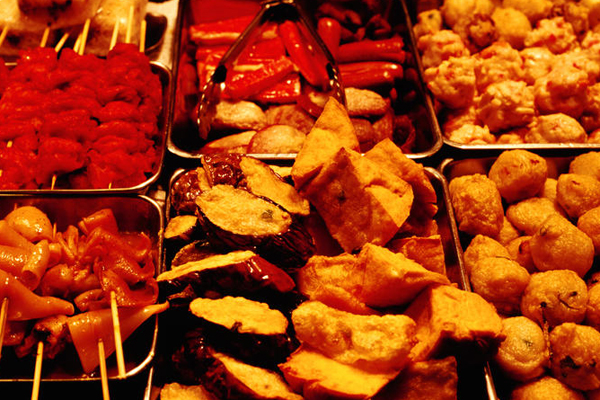One-of-a kind dining in Hong Kong
 |
|
Street food in Central. [Photo:Lonely Planet] |
Jetsetting noodles
Hong Kong's most expensive Shanghainese-style noodles (US$20 for a bowl) feature thick-cut strands of homemade noodles, and a broth boiled with handpicked Iberico ham, French rose shrimp, and all manner of European and Asian goodness. But before you dismiss them as OTT, consider this: their creator Mr Chow is a zealous Hong Kong chef of Shanghainese descent who's lived in France. Besides the noodle shop, he also owns a French restaurant and charcuterie nearby. So if history had flavours, Hong Kong's migrant and colonial heritage might taste something like the noodles at Olala (33 St Francis St).
Soy sauce Western
'Soy sauce Western' (si-yau sai-chaan) is the endearing name locals give to a style of cooking that features Western dishes prepared with (some say too much) Chinese wisdom. It's believed to have been invented by the sous chef of a foreign trading company in the Qing dynasty, and influenced by the shashlik, zakuska, and borscht of White Russians who had fled to Shanghai and opened cafes. Western recipes are liberally adapted, such as by replacing dairy ingredients with soy and Worcester sauce (Chinese were lacto-intolerant). Tai Ping Koon is known for its smoked pomfret, roast pigeon and turkey-sized souffle. At Queen's Cafe, the borscht and baked pork chop over rice are perennial favourites.
Tea cafes
Tea cafes (chaa chaan teng) appeared in the 1940s as cheap and cheery neigbourhood joints serving Western-style snacks and beverages to locals who couldn't afford scones and Earl Grey. Since then, their menus have evolved to include an embarrassment of quick-and-easy selections, Chinese and pseudo-Western. But they're best known for their 'pantyhose' milk tea – a strong and silky brew made from black tea and crushed egg shells. It's filtered through a bag that hangs like a stocking, hence the name, and consumed with evaporated milk. It's sometimes mixed with three parts coffee to create the popular drink ‘yin yeung' or tea-coffee. Pak Kung Cafe (91 Ma Tou Kok Rd) and Mido CafE (63 Temple St) serve a mean cup of ‘yin yeung’ amid nostalgic mid-century surrounds.
|
|
|
Snack stall food detail. [Photo:Lonely Planet] |
 0
0 









Go to Forum >>0 Comments